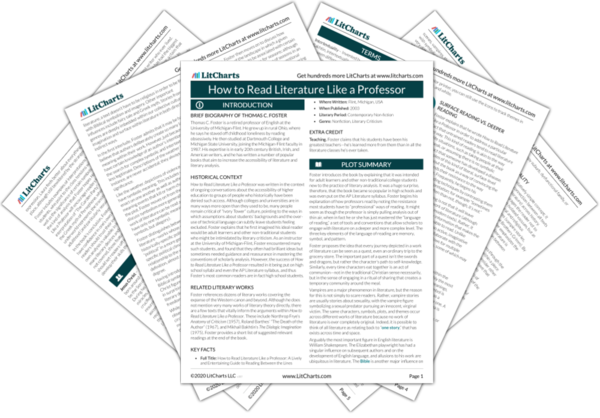There is no text more important to the Western literary tradition than the Bible. While the Bible itself is a remarkable piece of literature, filled with epic tales, memorable characters, and poetic imagery, the Bible’s influence on subsequent literary traditions has often been indirect and subtle. As Foster demonstrates, picking up on Biblical archetypes and symbolism can be tricky, especially when they appear in decidedly modern, secular texts.
However, drawing out these connections is useful as a way of understanding how all literature is connected through a giant web of intertextuality. It also reveals the way that patterns and symbols can be transposed and given a completely new meaning in a different context. From a religious perspective, the stories in the Bible each have a strong moral message that helps people live their lives according to God’s will. Once material from the Bible is recycled within a piece of literature, however, the original moral message will often be modified, complicated, or subverted.
The Bible Quotes in How to Read Literature Like a Professor
The devil, as the old saying goes, can quote Scripture. So can writers. Even those who aren't religious or don't live within the Judeo-Christian tradition may work something in from Job or Matthew or the Psalms.

Unlock explanations and citation info for this and every other How to Read Literature Like a Professor quote.
Plus so much more...
Get LitCharts A+Fiction and poetry and drama are not necessarily playgrounds for the overly literal. Many times I'll point out that a character is Christlike because he does X and Y and you might come back with, "But Christ did A and Z and his X wasn't like that, and besides, this character listens to AC/DC."












